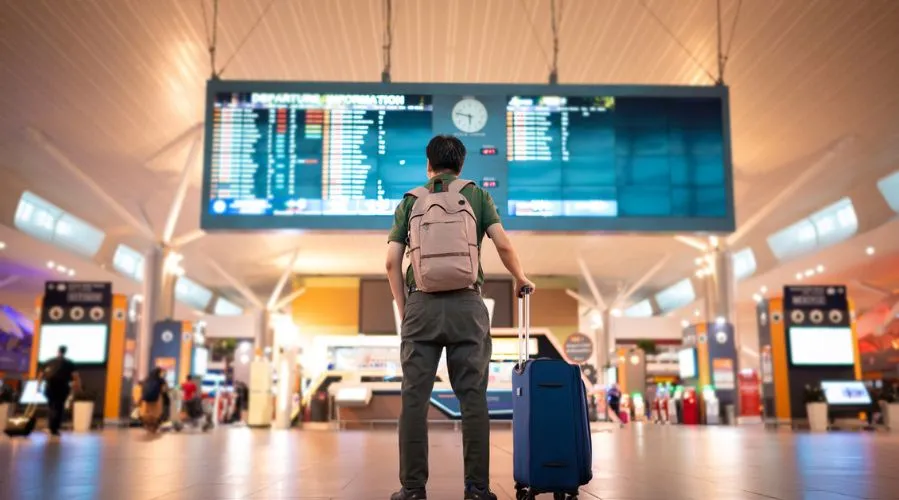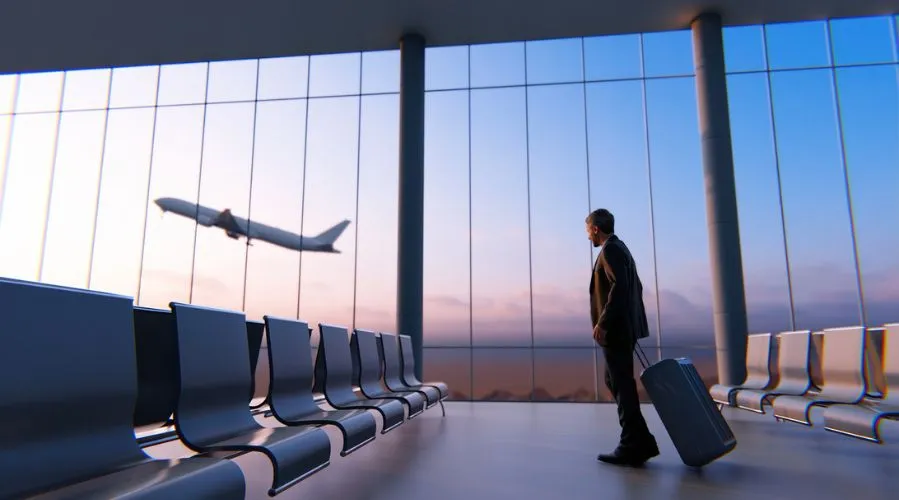Do Filipinos need a Schengen Visa to enter Europe?
Filipino nationals need to apply for a Schengen Visa in order to enter any of the Schengen Area countries.
What are the Schengen countries in Europe?
Austria, Belgium, Croatia, the Czech Republic, Denmark, Estonia, Finland, France, Germany, Greece, Hungary, Iceland, Italy, Latvia, Liechtenstein, Lithuania, Luxembourg, Malta, the Netherlands, Norway, Poland, Portugal, Slovakia, Slovenia, Spain, Sweden and Switzerland.
How do I apply for a Schengen Visa from the Philippines?
Those who want to apply for a Schengen Visa, most often need a standard Schengen Visa, for trips lasting up to 90 days in any 180 days’ period. Multiple-entry visas are also available if you plan on traveling regularly to the Schengen Area.
Schengen Visa applicants from the Philippines should submit their application no more than six months before their trip. It is advised you do so around a month before you leave, however, to allow for any delays in processing - and you must do so at least 15 days before you plan to leave. You need to fill out your application, submit supporting documents, and attend an interview at a consulate, embassy, or visa application center.
Who needs a Schengen Visa?
How much does a Visa for Europe cost from the Philippines?
You must pay administration fees (related to the administrative processing of the request). The amount of the fees must be paid to the visa service when submitting the application: either online if you have made a pre-application via an internet platform or with the service with which you submitted your file.
The fees are not reimbursed in the event of visa refusal.
The price of the Schengen Visa varies according to the age of the person concerned:
- Adult: €80 (PHP4600)
- Child from 12 to 18 years old: €80 (PHP4600)
- Child from 6 to less than 12 years old: €40 (PHP2300)
Certain external service providers mandated by the consular authorities may charge service fees. They are not refundable even in case of refusal of visa application
How do I book my Schengen Visa appointment?
Philippines Schengen Visa applicants must book an appointment to be interviewed and attend with documents supporting their application. Appointments will be undertaken at a consulate, embassy, or visa application center.
For example, the VFS Global visa application center in Manila handles applications on behalf of the French government, while for others you can apply at their embassy.
The BLS Philippines visa application center handles applications on behalf of the Spanish government.
There you will submit biometric data, including fingerprints.
What documents do I need to apply for a Schengen Visa from the Philippines?
1. Two Schengen Visa application forms completed and signed on the last page.
- Schengen visa 2022 application form (English)
2. A Cover Letter stating the applicant’s personal information, the purpose of their trip, the dates of their arrival and information on their return trip. The cover letter must also include information concerning any other accompanying persons. This includes family members, friends or business associates travelling for the same purpose. Please mention any special circumstances or requests to the Consulate.
3. A Passport valid for minimum three months after the expected visa stay and with at least two blank pages available. The passport must also have been delivered in the last 10 years.
4. Two passport size colour Photos, 2 x 2 inches (51 x 51 mm), printed on matte or glossy photo quality paper, taken within the last 6 months to reflect your current appearance and in front of a plain white or off-white background
5. Proof of Travel:
- Your confirmed travel reservations (round-trip) concerning your entry in and departure from the Schengen area. It is highly recommended not to buy your tickets until you get your visa.
- If you intend on visiting several Schengen countries, you will need to provide your full itinerary. You will also be required to provide documentation showing means of crossing the different borders (by air or land e.g. flights, bus, ferry tickets or Eurotunnel tickets).
- If you are travelling for business purposes, you are required to provide documents to prove the purpose of your stay such as an invitation from a company or organization based in Europe to participate in a meeting, convention, fair or congress, etc.
6. Proof of Accommodation (dates must be the same as flight/travel dates):
- A detailed hotel reservation for the duration of stay OR
- The ORIGINAL invitation letter from a family member or friend issued by local authority, for example the "Policía Nacional" in Spain or the Town Hall in France. In some cases, you might need to add a notarised letter from the inviting person taking responsibility for the applicant’s return to their home country.
- If you are taking part in a tour or a cruise, include a letter from your travel agent stating a complete itinerary of cities and hotels.
7. Proof of financial status to ensure you have sufficient means to support yourself for the entire duration of your stay. You will need to provide:
- Your latest bank statements (3 to 6 months depending on your country of origin)
- A marriage certificate for married couples who do not have a joint account, and either spouse is sponsoring the travel
- In case of financial support from an immediate family member, documents proving relationship (birth certificate or any relevant document), a passport copy of the sponsor and their letter stating full financial responsibility
8. Health & travel insurance certificate: This insurance is mandatory. It must cover accidents, illnesses and repatriation for costs up to a minimum of €30,000
9. Proof of employment:
- If you are employed: a letter from your employer stating your job title, length of time employed and annual salary AND/OR last 3-6 months pay slips
- If you do not work and are economically dependent (only family members), a notarised letter from the person you economically depend on, assuming full financial responsibility of your travel and stay, plus a copy of their valid passport and their three last bank statements. You will also submit the document proving your relationship with this person.
- If you are self-employed or a business owner: proof of self-employment or business ownership, registration number, recent tax return and bank statements.
10. The Visa Fee
We are doing our best to provide you the most reliable and updated information possible but rules and regulations concerning visas can be modified at all times by the consulate of your country if circumstances require it. Consequently, we can not be held accountable for these changes.
Please contact the Consulate to obtain the specific terms and conditions in effect at the moment of the submission of your visa application.
How much money do I need to have to obtain a Schengen Visa?
To visit the Schengen Area, you must prove you have the means of subsistence to support yourself during your stay - such as bank statements or proof of income. The amount will depend on the length of your stay and varies depending on the country you are staying in and whether you have already arranged and/or paid for accommodation.
What documents will I need to work or study on a Schengen Visa?
If you are planning to work or study in the Schengen Area, then you will need additional documents to obtain your Philippines Schengen Visa. For those coming to work in Europe, these include an employment contract, a current bank statement, a no objection letter from your employer, and an income tax return. For business trips or visits to conferences, you will need a letter of invitation from the business that you plan to visit in the Schengen Area. The self-employed need an income tax return, and a company bank statement, as well as any licensing documentation.
As a student, you will need proof of enrolment at an educational institution in the Schengen Area and a no-objection letter from the Filipino institution where you plan to study. You may also need to supply proof of a pension or property income if these provide your income.
How long does it take to get a Schengen Visa from the Philippines?
Applications should take around 15 days but can take up to 30 days to process, especially during busy periods. However, in some cases, it may take up to 60 days.
How do I book my Schengen Visa appointment in Manila?
Schengen Visa applicants in the Philippines must book an appointment to be interviewed and attend with the correct supporting documents.
Appointments will be undertaken at a consulate, embassy or visa application center. For example, the VFSGlobal visa application center in Manila handles applications on behalf of the French or the German governments.
How long does it take to process my Schengen Visa in the Philippines?
Applications should take around 15 days but can take up to 30 days to process, especially during busy periods. However, in some cases, it may take up to 60 days if the Embassy request for additional documents or if a personal interview is required.
How can AXA help?
AXA’s Low Cost Travel Insurance costs only €22 per week of your trip, and will meet your visa requirements, while our AXA Schengen Europe Travel Insurance offers extended coverage up to costs of €100,000. Those seeking a multiple-entry visa can purchase our Multi Trip insurance from € 328 per year, which again covers you for expenses up to €100,000.
All our products come with an insurance certificate that is instantly available online and can be printed to take to your visa interview in the Philippines. Your payment will be refunded in the event your Schengen Visa application is refused.
How to apply for Schengen visa in other countries ?
- How to apply for a Schengen Visa from Thailand
- How to apply for a Schengen Visa from China
- How to apply for a Schengen Visa from India
- How to apply for a Schengen Visa from Indonesia
- How to apply for a Schengen Visa from Jamaica
- How to apply for a Schengen Visa from Peru
- How to apply for a Schengen Visa from Mexico
- How to apply for a Schengen Visa from Colombia
- How to apply for a Schengen Visa from the U.K
- How to apply for a Schengen Visa from the U.S.A
- How to apply for a Schengen Visa from Turkey
- How to apply for a Schengen Visa from Saudi Arabia
Frequently asked questions about Philippines Schengen Visas
Which Schengen country should I make my Philippines Schengen Visa for?
You should make your application to the country where you are planning to spend most of your stay in - or if staying an equal amount of days in two countries - the one you plan to enter first.
What will happen if I overstay my Schengen Visa?
The sanction will depend on which country you are found to be overstaying in but you will face deportation - a fine and a possible ban from entering the Schengen Area.
Which is the easiest country to get a Schengen Visa from?
Lithuania is the easiest country to obtain a Schengen Visa from - with officials granting 98.7 percent of applications. The nation also receives fewer applications than countries such as Germany or France - as they are extremely popular with tourists and business travelers.
AXA already looks after millions of people around the world
With our travel insurance we can take great care of you too
AXA Schengen's Travel Insurances

AXA Schengen Low Cost
AXA Schengen Low Cost is perfect to obtain your Schengen visa. This travel insurance meets all the requirements demanded, covers you in all the countries of the Schengen Area as well as 4 European microstates (Andorra, Vatican City, Monaco and San Marino).

AXA Schengen Europe Travel
AXA Europe Travel is perfect to obtain your Schengen visa. It provides coverage in all the Schengen countries + the European microstates + all the EU countries (including UK, Cyprus and the Republic of Ireland). And you get additional guarantees compared to AXA Schengen Low Cost.

AXA Schengen Multi Trip
AXA Multi Trip is perfect to obtain your Schengen visa. This annual travel insurance is ideal for those who often travel to Europe as well as multiple-entry Schengen visa holders. You get the same guarantees as AXA Schengen Multi Trip for different countries during 90 days.


